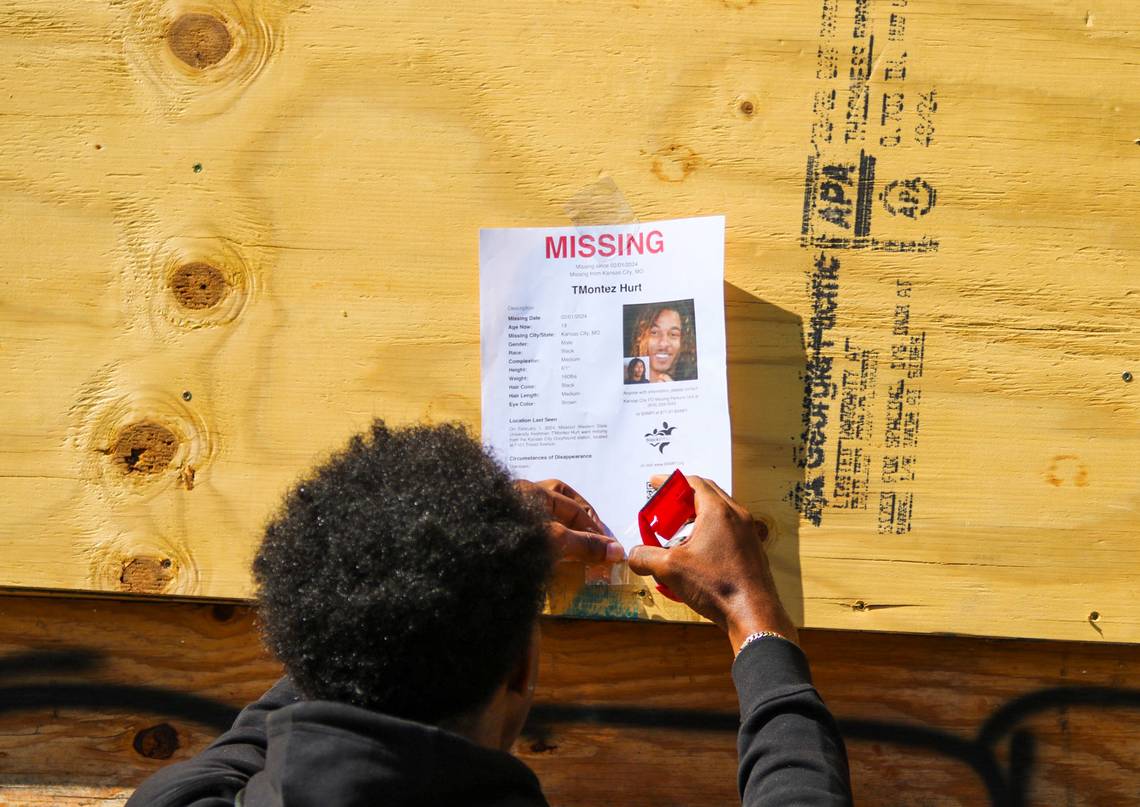Reality Check is a Star series holding those with power to account and shining a light on their decisions. Have a suggestion for a future story? Email our journalists at RealityCheck@kcstar.com.
Three months have passed since she made the missing person report, and each passing day she is caught between moments of grief and hope.
Tecona Sullivan is clinging tightly to the latter. Her hope has been fueled by support from groups with feet on the ground looking for her grandson T’Montez Hurt. But her grief has been compounded by a slow response by police in publicizing his case.
“We see all these pictures of missing people, but it’s just pictures, you know, until it actually happens in your life,” Sullivan said in a phone interview with the Star.
Hurt, 19, was last seen in the area of 77th and Troost Avenue in Kansas City wearing a blue polo shirt and green sweatpants, according to the Kansas City Police Department. His family in St. Louis has not heard from him since what Sullivan described as a troubling phone conversation with him the morning of Feb. 1.
The phone call
Sullivan said Hurt did not sound like himself. She said he was talking like a baby in their video call and addressing off-screen a younger woman he had been visiting and another man in Kansas City.
She heard her grandson say he had been “laced” and she took that to mean Hurt had been drugged.
Sullivan thought her grandson may have been having some sort of mental breakdown. So she convinced a receptionist at the first hospital she found in a Google search to send police and an ambulance to the 3900 block of Baltimore Avenue to pick Hurt up that morning.
It was the only thing she could think to do from her home in St. Louis.
Hurt was taken to St. Luke’s on the Plaza for a medical evaluation. But a few hours later, he was discharged. Sullivan said she believes they did so despite evidence of a mental health issue.
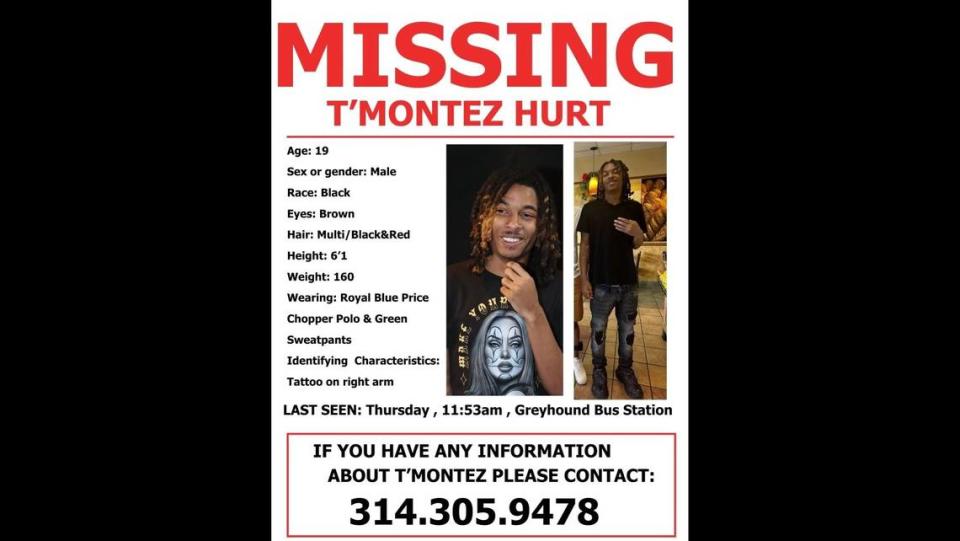
“He was not in the right frame of mind, which is why I was so adamant about the police and the hospital not letting him go,” she said.
Sullivan, arguing her case over the phone, urged a nurse at the hospital to examine him further. Instead, the hospital paid for a zTrip taxi to take Hurt to a Greyhound bus station.
But the station, at 1101 S. Troost Avenue, was closed through the afternoon. From the hospital to the bus station, Sullivan said she lost contact. However, video surveillance footage obtained by Sullivan showed her grandson get dropped off by the zTrip and realize the doors were locked.
He tried to go back to get his phone, Sullivan said, but the driver left him there. Without his phone, Hurt walked at least eight miles down Troost Avenue, according to KCPD.
‘I did everything I could’
When Sullivan talked to hospital personnel and police, she said she felt like nobody wanted to listen to her concerns. She felt like she took all the right steps to get him to a safe place, but said things quickly spiraled out of control.
When she first tried to make a missing person’s report, the day she lost contact with her grandson, she said she was told Hurt did not meet the criteria.
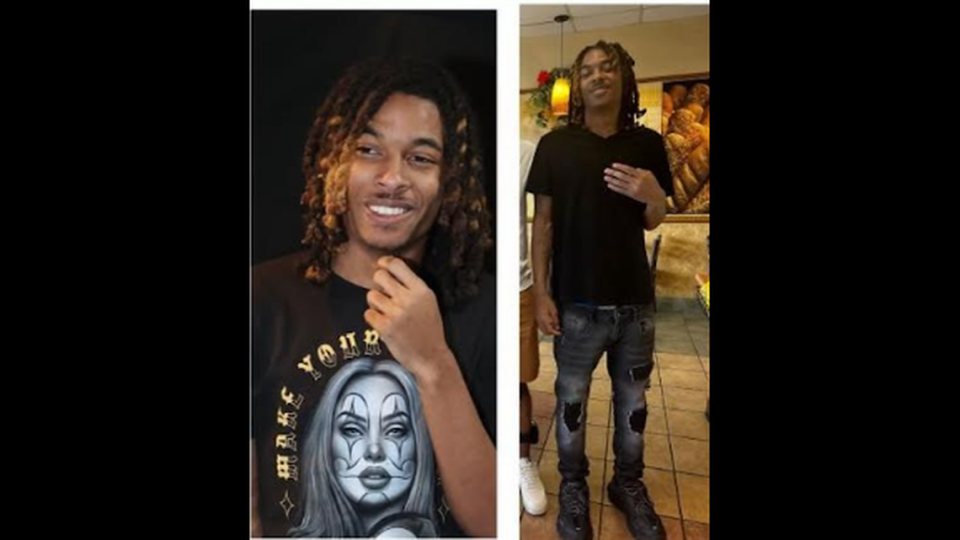

“When there is a loved one talking to you that knows the mental status of a person, they should listen,” Sullivan said.
“We pay tax dollars and we put these people in leadership positions to protect and serve, so when you call them, you want them to believe you, you want them to help,” she said. “And when I wasn’t getting that, I felt so alone.”
A missing person report was taken by Kansas City police Feb. 2, the same day they were notified of Hurt’s disappearance, according to Officer Alayna Gonzalez, a spokeswoman with KCPD. But a flyer wasn’t distributed to local media and posted on KCPD’s social media until March 27, almost two months later.
Hurt’s case quickly caught the eye of community groups in Kansas City, which have led search events and criticized the media and police response to Hurt’s disappearance.
Sullivan said she didn’t understand what took police so long to distribute flyers to the public.
“I spent money having them made, just to learn the police should have been giving me flyers,” she said.
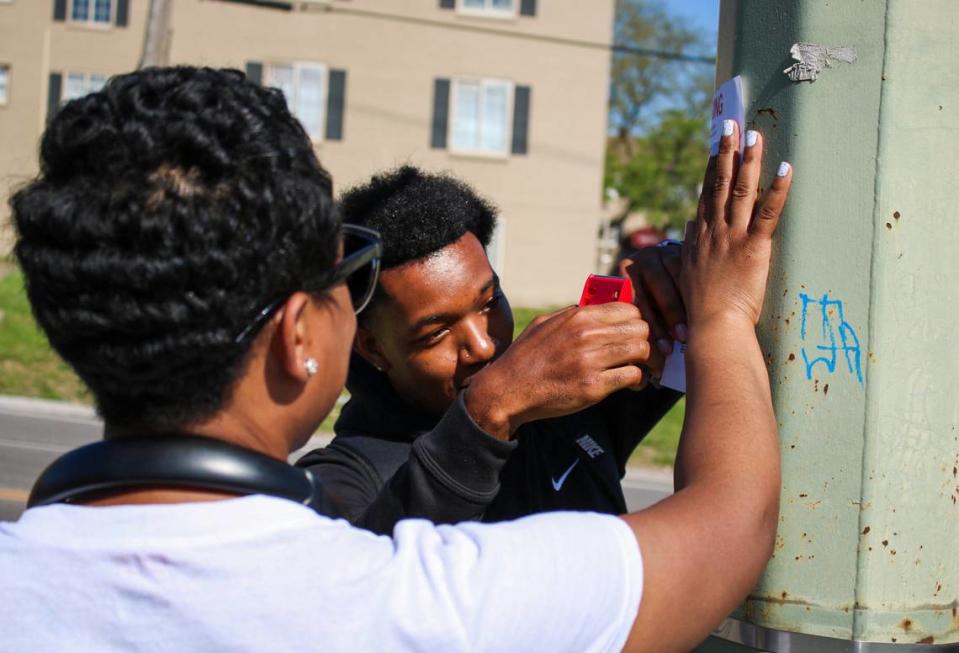

The only media coverage Hurt’s case generated in the first month he was missing, in fact, was due to flyers that Sullivan herself made and distributed, not information from police. While coverage of missing person cases is largely driven by media outlets, Sullivan said she began to question the process by which reports are taken and the timeline of when information is given to the public.
Prefacing her comments with sincere condolences to the family, she discussed the mass media attention when Riley Strain, a white University of Missouri student, went missing a month later.
Hurt attended Missouri Western State University in the fall 2023 semester, but he did not return for the spring 2024 semester.
“I hate to speak on it, but I have to,” she said. “My Tez was missing Feb. 1 and I didn’t get nearly the attention he had.”
“It shouldn’t matter whether I had money, whatever race or gender he was, none of that — he was missing,” she said. “I should have gotten the help I needed in the beginning, just like he did.”
Capt. Jacob Becchina, a spokesman with KCPD, said each missing person case is different, and the investigative process is determined by detectives on the case. KCPD shares information that investigators request be shared with the public, at the time they ask for it to be shared, he said.
“A media flyer will be generated by the case detectives when they feel it is in the best interest of the case to reach out and ask for the public’s help,” Gonzalez said in an email to The Star.
“We understand how that may portray to families (that) we are not working proactively to find their loved one,” Gonzalez said. “We never want a family member to feel our department and investigators have a lack of interest in their case or don’t care, because we most certainly do.”
In the months after her initial frustrations of filing a missing person’s report, however, Sullivan said she has appreciated consistent contact from both police and community groups. She turned to Kansas City’s Ad Hoc Group Against Crime and KC Discover, who have canvassed much of the city in an effort to find him.
Volunteers are walking with her knocking on doors, searching vacant buildings, posting flyers in businesses and on street poles, and engaging with people in neighborhoods across the city to spread awareness of Hurt’s disappearance.
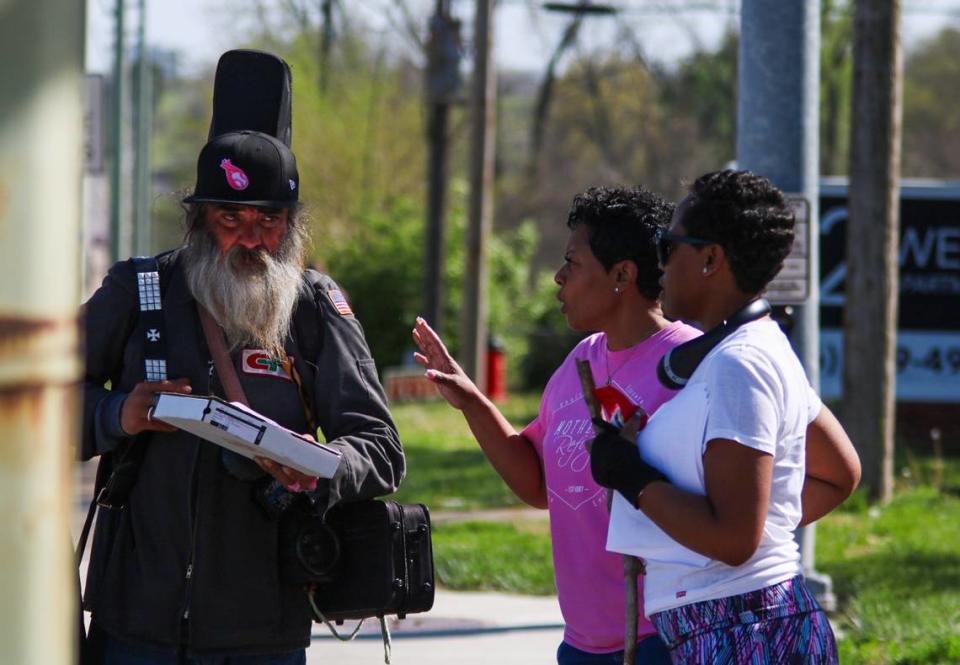

Search continues for T’Montez
“It’s hard because you don’t even know where to start,” said Timesha Allen, who had canvassed along Troost with KC Discover in April. “There are no leads.”
Eraina Buie and her daughter Denisha Jones have attended two searches with the group. They plan to do more.
“This is personal for me,” Buie said. “When I saw it on the news in March, my heart sank. My son, who is schizophrenic, was missing for a month and was without meds. We live in Raytown and we found him at a QuickTrip on 119th and Metcalf.”
“I feel (Sullivan’s) pain, and her’s is worse because she’s four hours away,” Buie said. “That’s when I said, ‘I’ve got to do something.’”
In the police investigation, several hours of video footage have been collected and reviewed. Detectives spoke with businesses in areas where T’Montez had been seen in the footage and initiated several searches of their own.
Gonzalez said investigators walked on foot speaking to anyone in the area along Troost to learn if T’Montez had been seen. Flyers were made for local patrol divisions and given to patrol officers to be on the lookout for Hurt.
Those fliers were also provided to police departments in other cities where KCPD received tips Hurt may have been staying or sighted. KCPD did not say what those other locations were.
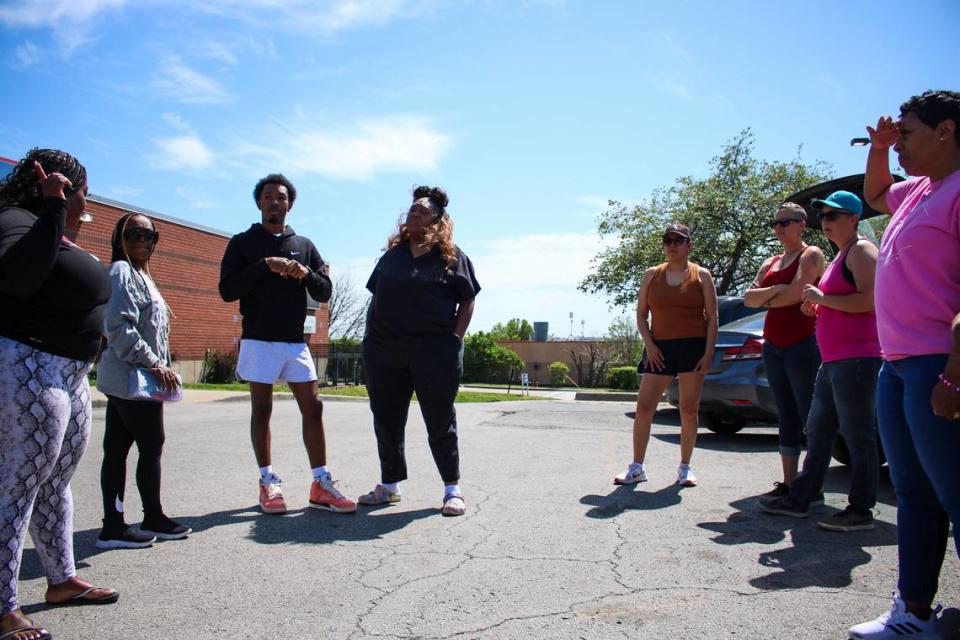

A request for extra patrol was also submitted at division stations near Hurt’s last known sighting, Gonzalez said. Residence checks at several different homes have been conducted.
But leads have been hard to come by.
“We can’t find those we can’t see,” Sullivan said, quoting a leader with Looking for an Angel, a nonprofit group that helps families of missing persons.
She attended a support group hosted by the organization in St. Louis two months after Hurt went missing. The event stressed the importance of having photos in missing person flyers with identifying information.
It was a breath of fresh air after constant stress, Sullivan said.
In an interview with The Star, Sullivan said she wanted to share a specific message to the general public and anyone who may know about Hurt’s situation.
“If you have Tez, we thank you,” she said. “If you felt like he was in some type of harm and just wanted to shelter him and keep him from danger, the family appreciates it.”
“We don’t want to ask questions, we don’t care where he’s been. Just can you please release him, let him go, call somebody and we will pick him up.”
Sullivan is still stuck between grief and hope. But the hope has to be stronger, she said.
“I still have hope. I really believe that Tez is alive and out there.”
The Star’s Bill Lukitsch contributed to this report.
